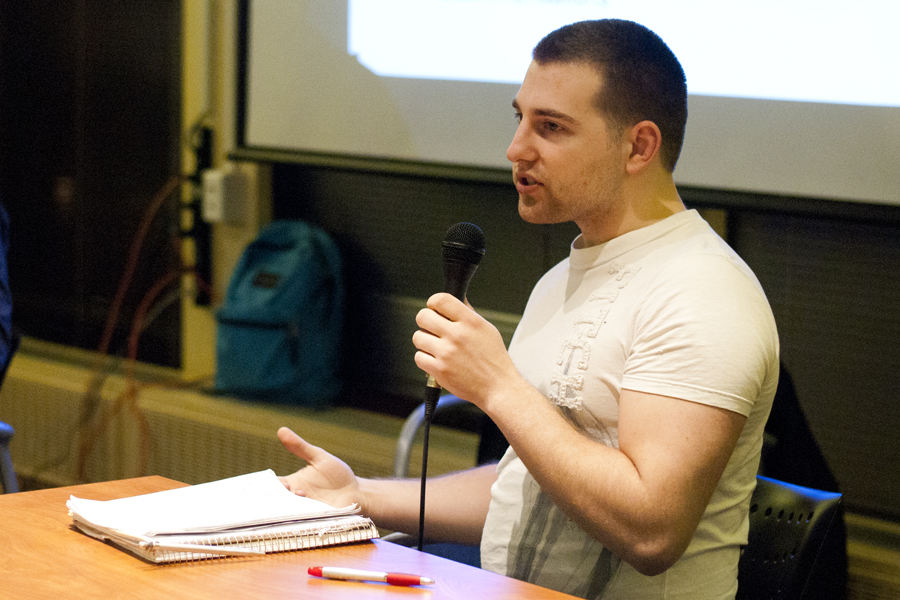Motion regarding creation of the SSMU Equity Fund referendum question
The beginning of Thursday evening’s Council meeting involved discussion on how the Students’ Society of McGill University (SSMU) addresses equity. SSMU Equity Commissioners Justin Koh and Shaina Agbayani reported on the work of the Student Equity Committee this past academic year, and guest speakers Sara Houshmand and Gauthamie Poolokasingham from the McGill Diversity and Equity Research Lab presented on the lack of quantitative and qualitative research showing the effects of racism on campus.
These presentations provided councillors with information relevant to the first motion discussed that evening. When the motion came up for debate, councillors voted to approve a referendum question about creating a SSMU Equity Fund, consisting of an opt-outable $0.50 fee per semester for all SSMU members. The fee would go towards creating and pursuing initiatives that support equity at McGill.
Several councillors expressed optimism that the creation of this fund would have positive effects on equity on campus, such as showing that SSMU not only supports equity, but is also committed to a position of leadership on the topic.
Following discussion, Council passed the motion. McGill students will be able to vote on this question in the Winter referendum period, which runs March 15 -22.
Motion regarding a greener McGill
One contentious motion called for SSMU to present the university with a letter expressing its support for the university’s “divestment from companies in the tar sands, fossil fuels, and the financial institutions supporting those companies.” The motion further asked SSMU to “firmly lay out the Society’s position on divestment from companies that do business on the traditional territories of Canada’s First Nation and Inuit peoples without democratic community consent and the financial institutions supporting those companies.”
SSMU Vice-President Finance and Operations Jean Paul Briggs asked about at what point SSMU would have to oppose the university’s engagement in shareholder action with companies involved in the Oil Sands and fossil fuels production. Chris Bangs, a spokesperson of Divest McGill who presented the motion, explained that it would only encourage engagements that result in more drastic improvements, as needed for the current stage of climate change.
Councillors also questioned the role of student groups—most notably Divest McGill—in the ongoing campaign for divestment. Science Representative David Chaim expressed concern about the execution of the campaign led by Divest McGill, saying that it does not have a proper corporate structure with mandates, and suggested that SSMU become the official leader of the campaign instead. Other councillors pointed out that Divest McGill has no authority to mandate SSMU actions.
Councillors voted to table the motion for the following Council meeting to allow for more extensive amendments.
Motion regarding increasing the diversity of student representation of the McGill Senate
A third motion passed by Council called for SSMU to amend its by-laws to prioritize the reallocation of vacant senator seats to students in minority programs at McGill in the event that seats are left unoccupied following the nomination period for the McGill Senate.
Student positions on Senate are typically filled by election, with each faculty holding a specific number of seats. Now, any vacant seats after the nomination period will be “reallocated first to programs … including the Schools of Physical/Occupational Theory, Nursing, and Social Work, and the Interfaculty of Arts and Science, in descending order according from the program with the most students enrolled to the program with the least.”
According to SSMU President Josh Redel, this means that if no one runs in the Faculty of Religious Studies, for example, then someone from a smaller faculty will then have the chance to run, rather than giving the new seat first to someone from the science or engineering faculties.
Before it passed, Arts and Science Representative Victor Lam, who was among the movers of this motion, also amended the motion. The amendment limits these faculty senators, when collecting signatures for their nomination, to only soliciting students from their own faculty.








